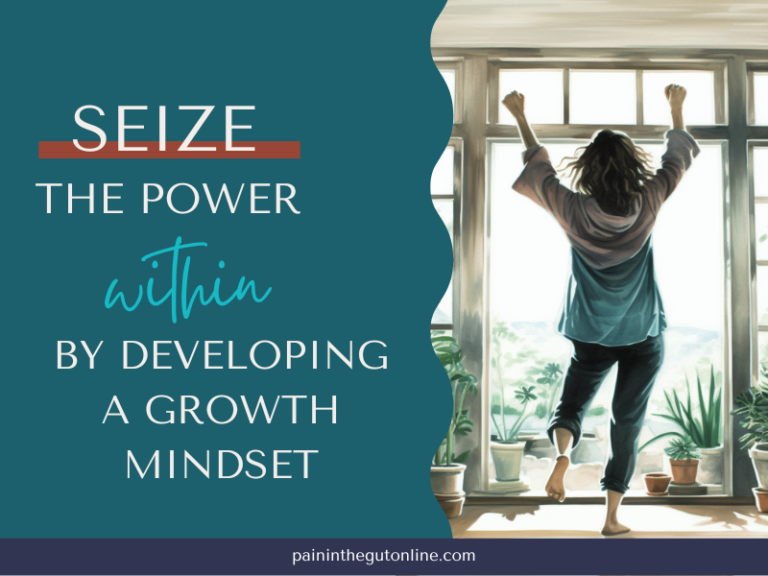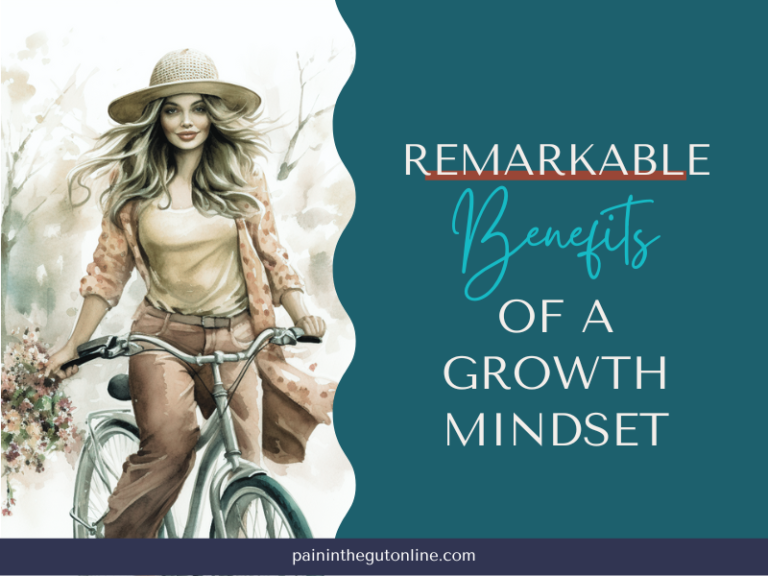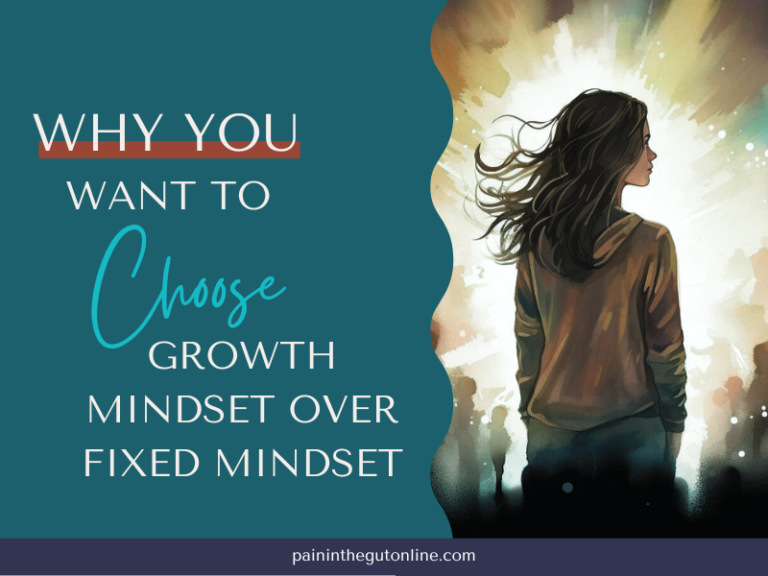GROWTH MINDSET ACTIVITIES
10 min read/ 2,331 words
Unleash your inner strength with empowering growth mindset activities. Achieve health goals with resilience and a positive mindset.

Table of Contents
Understanding Growth Mindset
Developing a growth mindset is a transformative approach to viewing challenges, setbacks, and personal growth. It is the belief that your abilities and intelligence can be developed through dedication, effort, and learning.
By embracing a growth mindset, you can unlock your potential, overcome obstacles, and achieve personal and professional growth.
What is a Growth Mindset?
A growth mindset is the understanding that your talents, skills, and intelligence are not fixed traits but qualities that can be cultivated and improved over time.
It involves recognizing that effort, perseverance, and learning are essential for personal development and success.
With a growth mindset, you believe your abilities can be developed through practice, learning from mistakes, seeking feedback, and embracing challenges. You see setbacks and failures as opportunities for growth and learning rather than indicators of limitations.
Benefits of a Growth Mindset
Adopting a growth mindset can benefit your personal and professional life. Here are some of the advantages of cultivating a growth mindset:
- Resilience and Persistence: A growth mindset helps you develop resilience and bounce back from setbacks. You become more persistent in facing challenges, understanding that effort and learning are crucial for improvement.
- Increased Motivation: Embracing a growth mindset fuels intrinsic motivation. You are driven by your desire to learn, grow, and reach your full potential. This internal drive pushes you to take on new challenges and continuously improve.
- Embracing Challenges: With a growth mindset, you view challenges as opportunities to learn and grow. Rather than avoiding difficult tasks, you approach them positively, knowing they can lead to personal development and new skills.
- Improved Performance: By believing in your ability to develop and improve, you are more likely to put in the effort and dedication necessary to succeed. This can improve performance in various areas of your life, including academics, career, and personal goals.
- Resilience in the Face of Failure: A growth mindset helps you reframe failure as a stepping stone to success. Rather than being discouraged by setbacks, you see them as valuable learning experiences that can propel you forward.
To truly benefit from a growth mindset, it’s important to cultivate it in all aspects of your life, including your health goals. By applying a growth mindset to your health journey, you can overcome obstacles, stay motivated, and continually strive for improvement.
Importance of Growth Mindset for Health Goals
When it comes to achieving your health goals, cultivating a growth mindset is crucial.
Applying a growth mindset to your health goals involves believing that your abilities and skills can be developed through effort and learning. This mindset allows you to approach your health journey with a positive attitude and a belief in your ability to make progress (Source).
Applying Growth Mindset to Health Goals
By adopting a growth mindset, you can approach your health goals with the belief that you can improve and grow.
Rather than focusing on limitations or fixed abilities, you recognize that effort and learning make change possible. This mindset shift allows you to set realistic goals and approach them enthusiastically and determinedly.
To apply a growth mindset to your health goals, consider the following:
- Embrace setbacks and challenges: Instead of viewing setbacks as failures, individuals with a growth mindset see them as opportunities for learning and growth. Embracing setbacks allows you to learn valuable lessons and adjust your approach. It encourages resilience and persistence, leading to greater success in achieving your health goals (Source).
- Practice self-reflection and seek feedback: Growth mindset activities can help you overcome setbacks and challenges in your health journey. By reflecting on your progress and seeking feedback from trusted sources, you can gain valuable insights and learn from your mistakes. This fosters a growth mindset that promotes continuous improvement and progress towards your health goals (Source).
Overcoming Setbacks and Challenges
In your pursuit of health goals, setbacks, and challenges are inevitable. However, with a growth mindset, you can approach these obstacles as opportunities for growth and learning.
Here are some strategies to help you overcome setbacks and challenges:
- Develop resilience: Resilience is key to applying a growth mindset to your health goals. Embrace failure as a natural part of the learning process and view setbacks as stepping stones towards success. Maintaining a positive mindset and bouncing back from setbacks, you can stay motivated and determined to pursue your health goals (Source).
- View challenges as opportunities: Challenges are an integral part of your health journey. With a growth mindset, you can embrace challenges as opportunities for growth and improvement. Approach challenges with a positive attitude, develop problem-solving skills, and find creative solutions to overcome obstacles. This mindset shift will empower you to navigate challenges successfully on your path to better health (Source).
Applying a growth mindset to your health goals and overcoming setbacks and challenges can create a positive and empowering environment for your journey toward improved health.
Remember, believing in your ability to learn and grow is a powerful tool in achieving your health aspirations.
Growth Mindset Activities for Health Improvement
Engaging in specific activities can be incredibly beneficial in cultivating a growth mindset and improving your health journey. These activities focus on embracing challenges and setbacks, developing resilience and persistence, and learning from mistakes while seeking feedback.
Embracing Challenges and Setbacks
Embracing challenges and setbacks is a fundamental aspect of developing a growth mindset. Instead of being discouraged by obstacles, view them as opportunities for growth and learning.
Here are some activities to help you embrace challenges and setbacks:
- Journaling: Take time to reflect on the challenges you’ve faced on your health journey. Write about how these challenges have helped you learn and grow. Identify the lessons you’ve learned and the strategies you can employ to overcome future obstacles.
- Goal Setting: Set ambitious yet realistic goals for your health improvement. Break them down into smaller, manageable steps. Embrace the challenges along the way, knowing that each hurdle brings you closer to your ultimate goal.
- Visualization and Affirmations: Visualize yourself successfully overcoming challenges and setbacks. Use positive affirmations to reinforce your belief in your ability to overcome obstacles. This practice can help shift your mindset towards viewing challenges as opportunities for growth.
Developing Resilience and Persistence
Resilience and persistence are key components of a growth mindset. They enable you to bounce back from setbacks and keep pushing forward.
Here are some activities to help you develop resilience and persistence:
- Positive Self-Talk: Cultivate a positive internal dialogue. Replace negative self-talk with encouraging and supportive statements. Remind yourself of your strengths and past successes to build resilience and maintain a growth mindset.
- Mindfulness and Stress Management: Practice mindfulness techniques, such as deep breathing and meditation, to manage stress and build resilience. Mindfulness can help you stay focused, maintain a positive mindset, and persevere through challenges.
- Seek Support and Accountability: Surround yourself with a supportive network of friends, family, or a health coach who can provide encouragement and hold you accountable. Lean on them during difficult times, and celebrate milestones together.
Learning from Mistakes and Seeking Feedback
Mistakes are valuable learning opportunities, and seeking feedback allows continuous growth and improvement.
Here are some activities to help you learn from mistakes and seek feedback:
- Reflection and Analysis: Take time to reflect on your health journey, identifying areas where mistakes were made. Analyze what went wrong and consider alternative approaches. Use these insights to adapt your strategies and make necessary adjustments.
- Learning Circles or Support Groups: Join a learning circle or support group focused on health improvement. Engage in discussions where you can share experiences, learn from others’ mistakes, and receive constructive feedback. This collaborative environment fosters growth and encourages a positive mindset.
- Consultation with Professionals: Seek guidance from health professionals, such as nutritionists, trainers, or therapists. They can provide expert advice and personalized feedback and help you develop effective strategies to overcome challenges.
By actively participating in these growth mindset activities, you can enhance your ability to embrace challenges, develop resilience and persistence, and learn from mistakes and feedback.
Remember, developing a growth mindset is a continuous process, and each activity you engage in contributes to your overall personal growth and health improvement.
Integrating Growth Mindset into Daily Life
To truly embrace a growth mindset and experience its transformative benefits, it’s important to integrate growth mindset activities into your daily life. By doing so, you can foster personal growth, enhance your health goals, and develop a positive outlook on life.
Here are three key activities to help you cultivate a growth mindset:
Setting Realistic Goals
Setting realistic goals is an essential aspect of embracing a growth mindset.
When establishing health goals, it’s important to make them specific, measurable, attainable, relevant, and time-bound (SMART). By setting realistic goals, you can avoid feeling overwhelmed and maintain a positive mindset throughout your journey.
Start by identifying your long-term health aspirations, such as improving your overall fitness, losing weight, or managing stress.
Break these aspirations down into smaller, achievable milestones that align with your capabilities and resources. Celebrate each milestone you reach, as it will reinforce your growth mindset and motivate you to continue progressing.
Remember, setbacks and challenges are part of the journey. Embrace them as opportunities to learn and grow rather than viewing them as failures.
Adjust your goals as needed, learn from any setbacks, and keep moving forward with a positive mindset.
Cultivating Curiosity and Openness
Cultivating curiosity and openness is another powerful growth mindset activity.
Approach new experiences, knowledge, and challenges with a sense of curiosity and a willingness to learn. Embrace the opportunity to step outside of your comfort zone and explore new possibilities.
To foster curiosity, seek out diverse perspectives, read books or articles on topics you’re interested in, and engage in meaningful conversations with others.
Actively listen and ask questions, allowing yourself to absorb new information and learn from different viewpoints.
By cultivating curiosity, you can expand your knowledge, enhance your problem-solving skills, and develop a growth-oriented mindset.
Maintaining an open mind is equally important.
Be receptive to feedback and different opinions, even if they challenge your existing beliefs. Embrace the opportunity to learn from others and consider alternative approaches. This openness will enable you to adapt and grow, both personally and in pursuit of your health goals.
Practicing Self-Reflection and Self-Affirmations
Self-reflection and self-affirmations are powerful growth mindset activities that promote self-awareness and a positive mindset.
Set aside time each day for introspection and reflection. This could involve journaling, meditation, or simply finding a quiet space to contemplate your thoughts and experiences.
Reflect on your achievements, challenges, and areas for improvement.
Identify the lessons learned from your experiences and consider how you can apply them to your personal growth and health goals. Acknowledge your progress and affirm your abilities and strengths.
Use positive self-talk and affirmations to reinforce your belief in your potential for growth and success.
Practicing self-reflection and self-affirmations will help you develop resilience, maintain a growth mindset, and overcome any self-doubt or negative self-talk that may arise.
Embrace the power of yet – the understanding that you may not have achieved something yet, but with effort and perseverance, you can continue to grow and improve.
By integrating these growth mindset activities into your daily life, you can cultivate a mindset that embraces challenges, values learning, and promotes personal growth. Remember, developing a growth mindset is a lifelong journey, and each small step you take will contribute to your overall growth and well-being.
Growth Mindset and Personal Growth
When it comes to personal growth, embracing a growth mindset can be a powerful tool.
It allows you to believe in your ability to learn, grow, and improve over time.
In this section, we will explore three key aspects of personal growth related to a growth mindset: the power of yet, embracing change and trying new things, and building a supportive growth mindset network.
The Power of Yet
Introducing the concept of “The Power of Yet” is a great way to cultivate a growth mindset.
This concept helps you understand that just because you might not understand or achieve something now, it doesn’t mean you won’t be able to in the future. By adding the word “yet” to your vocabulary, you shift your mindset from fixed to growth, embracing the belief that with effort and perseverance, you can develop new skills and abilities.
This empowers you to approach challenges with a positive attitude, knowing that you have the potential to overcome them (SplashLearn).
Embracing Change and Trying New Things
One of the hallmarks of personal growth is the willingness to embrace change and step out of your comfort zone.
By adopting a growth mindset, you open yourself up to new opportunities and experiences. Embracing change allows you to expand your horizons, discover new passions, and unlock your full potential.
Trying new things, whether it’s learning a new skill, taking up a hobby, or exploring different perspectives, fosters personal growth by challenging you to adapt, learn, and grow.
Remember, even if something feels unfamiliar or difficult at first, it’s an opportunity for growth (Big Life Journal).
Building a Supportive Growth Mindset Network
Surrounding yourself with a supportive network of individuals who share a growth mindset can significantly impact your personal growth journey.
Seek out like-minded individuals who encourage and inspire you to pursue your goals and overcome challenges.
Engaging in discussions, sharing experiences, and collaborating with others who believe in the power of growth can provide valuable insights, support, and motivation along the way. Together, you can celebrate successes, learn from failures, and collectively grow and evolve (Big Life Journal).
By understanding the power of yet, embracing change and trying new things, and building a supportive growth mindset network, you can foster personal growth and unlock your full potential.
Remember that personal growth is a lifelong journey, and cultivating a growth mindset is a powerful tool that can propel you forward.
Embrace the belief that your abilities and skills can be developed through dedication, effort, and continuous learning, and you will embark on a path of constant growth and self-improvement.






